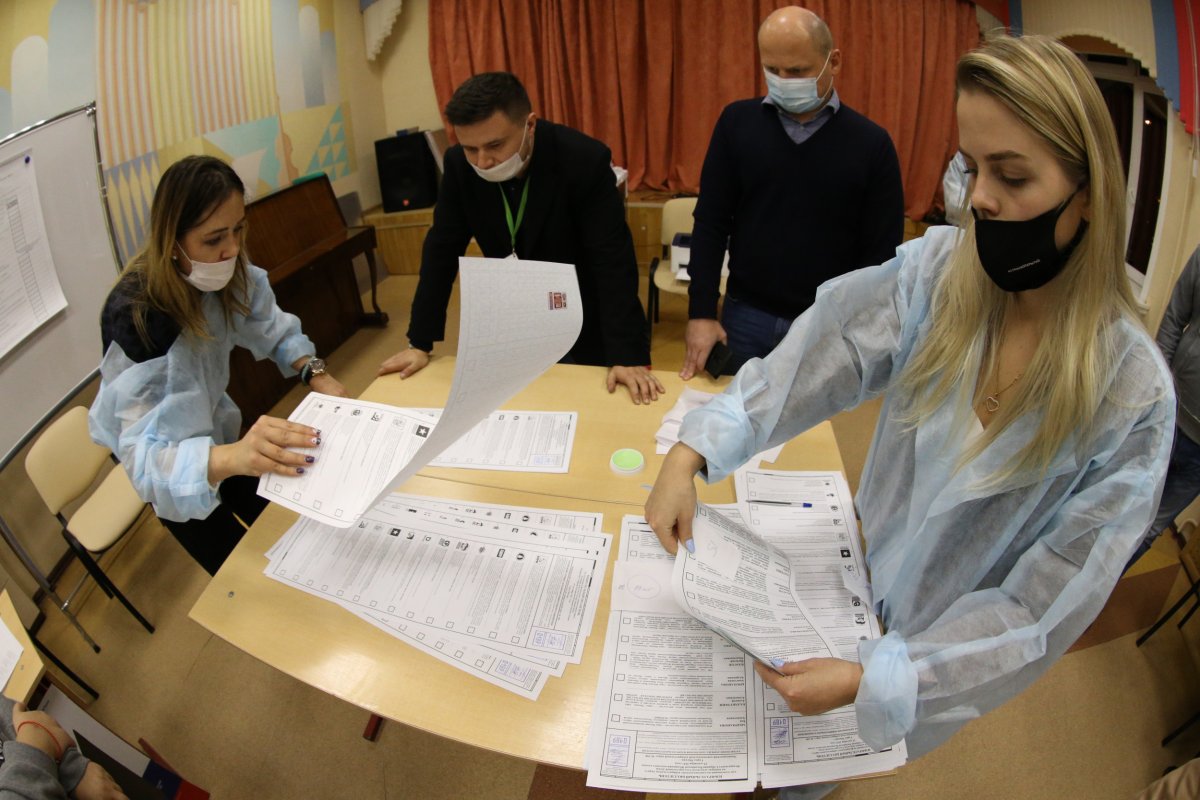Russia has hit back at the State Department's condemnation of its parliamentary elections by accusing the U.S. of orchestrating cyber-attacks in the lead-up to the ballot.
The three-day election for Russia's lower house has predictably been marred by accusations of fraud and repression, as well as criticism from opposition groups and foreign governments that the ballot was rigged.
The ruling United Russia party, which supports President Vladimir Putin, is poised to maintain its two-thirds constitutional majority in the 450-seat parliament, the Duma.
However, the State Department said on Monday the ballot took place under conditions "not conducive to free and fair proceedings," as it criticized a clampdown by the authorities including "efforts to marginalize independent political figures."
In the months leading up to the election, an anti-corruption group linked to jailed opposition politician Alexei Navalny was deemed "extremist."
The State Department also referred to Russian laws targeting "foreign agents," or groups including media outlets who received foreign funds.
The Organization for Security and Cooperation in Europe did not send observers for the election because of limitations imposed on its operation by the Russian authorities.
The U.S. said Moscow "severely restricted political pluralism and prevented the Russian people from exercising their civil and political rights."
But Russia responded by calling the U.S. accusations "groundless."
"The expression of the will of the people took place in full compliance with the provisions of domestic legislation and the norms of international law," the Russian Embassy said in a statement posted on Facebook in English and Russian.
"Any claims to the contrary are unacceptable. Any irregularities did not impact on the overall course of the voting and cannot affect the results of the election campaign."
It also said that "during the recent elections" the Central Election Commission of Russia had "faced an unprecedented number of cyber-attacks" and that "50 percent of them were detected to be conducted precisely from the territory of the United States."
"The purpose of these hacks is to discredit our electoral system. We would like to receive detailed explanations of this case from the American side," the statement added.
The statement did not offer further details but, earlier this month, Russia's foreign ministry summoned U.S. ambassador John Sullivan after it accused U.S. tech companies of interference ahead of the elections.
In a statement to Newsweek on Wednesday, the State Department called the Russian claims "baseless allegations" that were "designed to deflect attention from the real threat to the integrity of these elections."
The statement described "the increasingly repressive environment Russian authorities have created to advantage ruling party candidates," which it had done by "obstructing electoral transparency, marginalizing independent media, and preventing opposition participation."
Last week, on the day that Russians went to the polls, Apple and Google deleted from their online stores a Navalny-linked app that facilitated tactical voting to target United Russia.
It followed weeks of pressure on the companies by the communications watchdog Roskomnadzor, which accused them of meddling in internal Russian affairs.
Update 9/22/21, 11:35 a.m. ET: The story was updated to add a State Department response to Newsweek.

Uncommon Knowledge
Newsweek is committed to challenging conventional wisdom and finding connections in the search for common ground.
Newsweek is committed to challenging conventional wisdom and finding connections in the search for common ground.
About the writer
Brendan Cole is a Newsweek Senior News Reporter based in London, UK. His focus is Russia and Ukraine, in particular ... Read more
To read how Newsweek uses AI as a newsroom tool, Click here.








